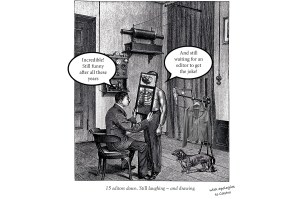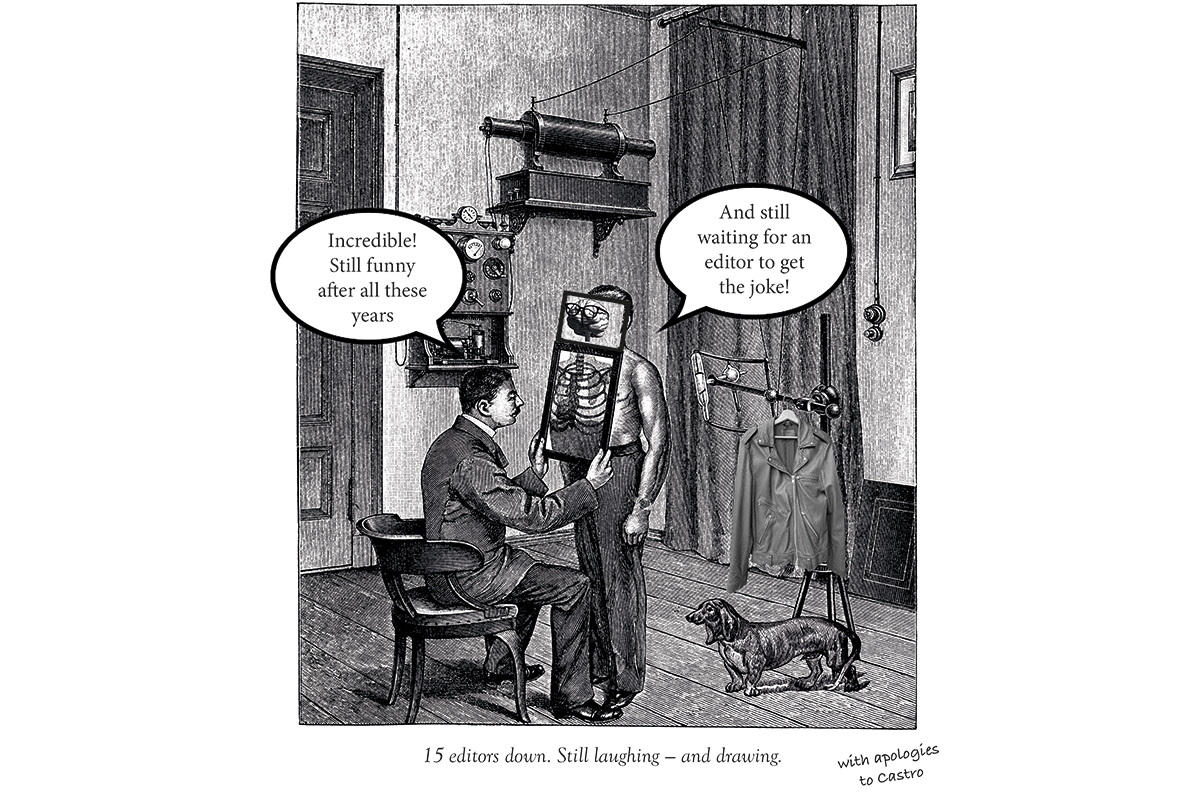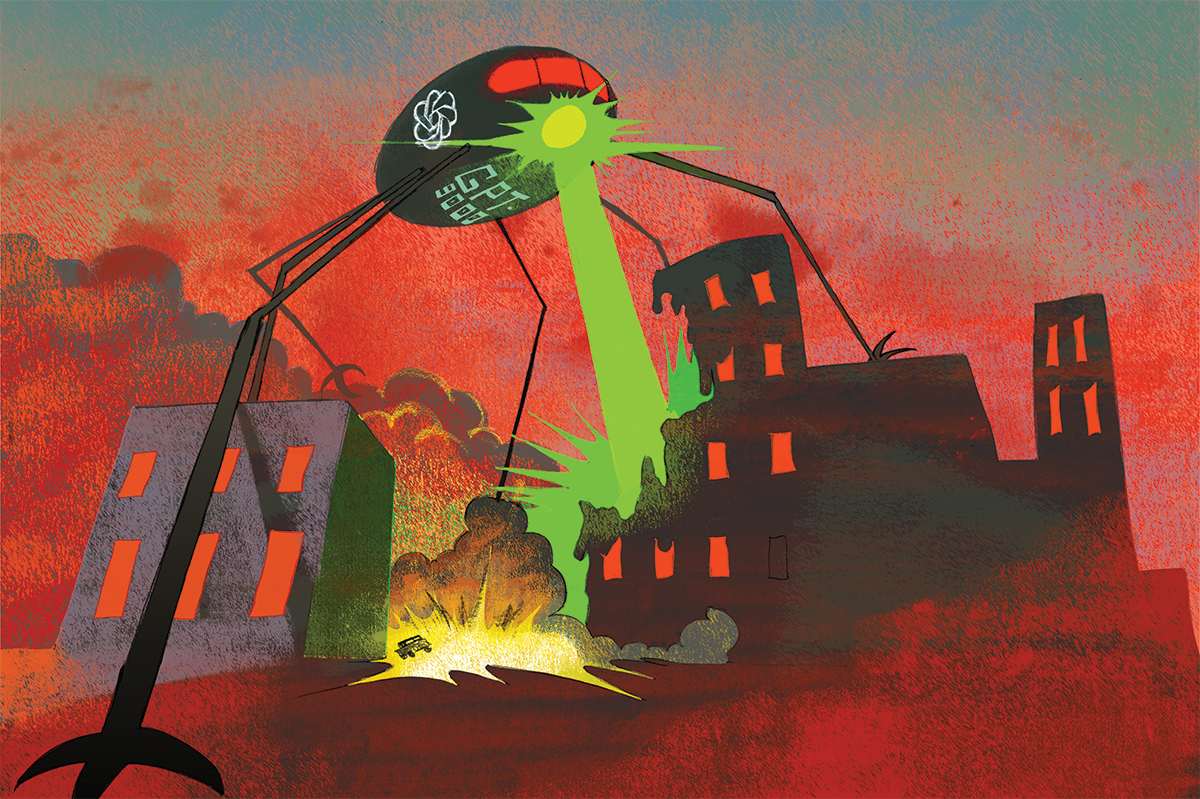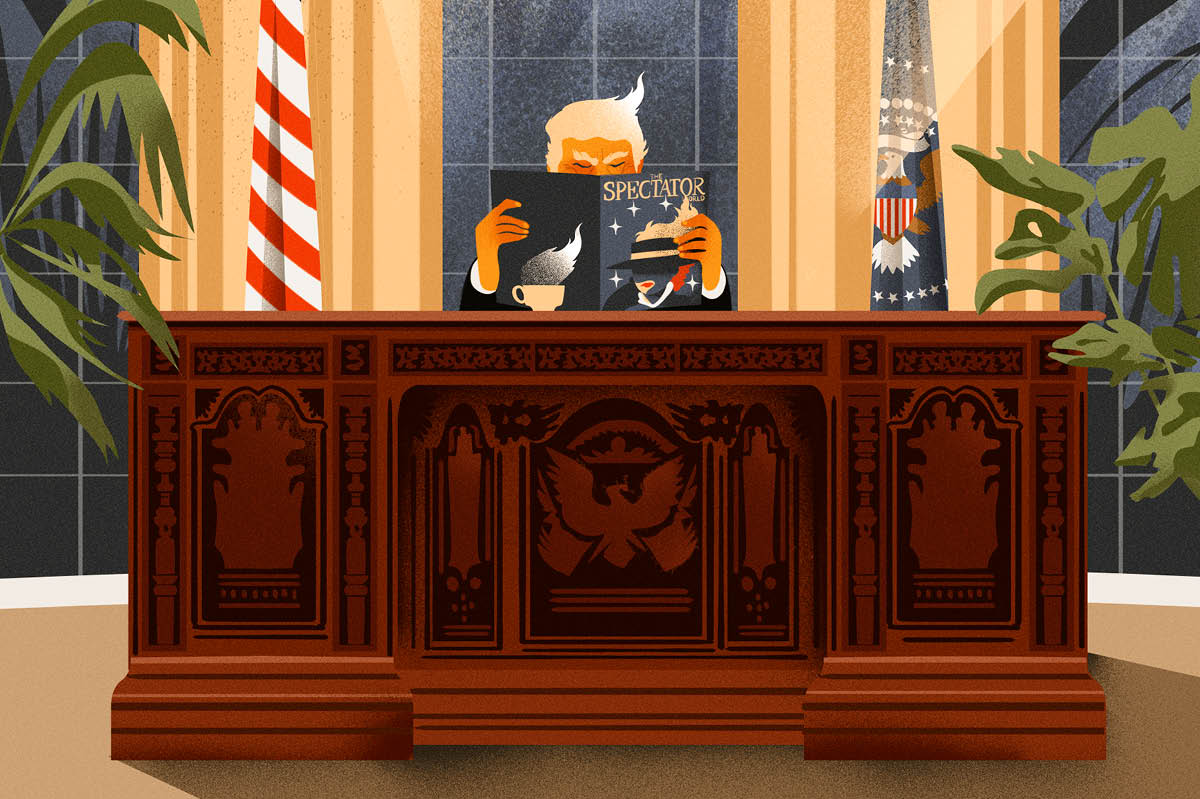is barely a year old, but its British parent has been around since the 19th century. Indeed, The Spectator’s pedigree is even older than that, as the magazine takes its name from an earlier, 18th-century sheet produced by Joseph Addison and Richard Steele. Today The Spectator’s British website harks back to the days of Addison and Steele in the name of its daily commentary department, the ‘Coffee House,’ for in the 18th century, coffee houses were the places where things like The Spectator and other specimens of what would later evolve into magazines and newspapers were usually to be found. Before there were newsstands or bookstores with magazine racks, there were coffee houses.
Today Facebook is like the world’s worst coffee house. This one is run by a proprietor and a faceless army of administrators and enforcers who have taken upon themselves to decide what the customers can read – and worse, what they can say. In 18th century London, you might have a proprietor who was just censorious, a Whig who would brook no Tory literature, perhaps. But then, you had a great many coffee houses among which to choose: if you didn’t like one, there was always another. There is no other Facebook.
This has serious consequences for free speech and public discourse, which is becoming less free and public the more that Facebook grows.
The original Spectator had a print run of only a few thousand copies, but they were widely shared and talked about, and issues were later compiled into bound volumes. The readership was small by the standards of later centuries, too. But no publication and no coffee house had the kind of dominance over even such a small clientele that Facebook has over the entire US market – and much of the world market – today.
Throughout the 19th and 20th centuries, the places where you could buy magazines and newspapers and other printed materials proliferated, as did the nature of what you could buy: political magazines of all kinds; pornographic magazines (also of all kinds); hobby and craft magazines; serious newspapers and UFO reports (nowadays hard to distinguish); wrestling magazines; celebrity magazines; and masses more. Different retailers had different standards as to what they would carry; some retailers made a great point to carry what was offensive or controversial. Like libraries, independent bookstores often felt they had a civic duty to stock whatever adults wanted to read.
Facebook does not feel that way: its curators decide who or what is allowed to be read and discussed based on what they believe is morally appropriate for you or me. It’s as if the country had a bookstore monopoly that imposed a single set of editorial standards on every publication. But it’s worse than that. Facebook also consumes the advertising revenue that once went to publications, and it – as well as internet retail in general – has relieved millions of customers of the need or desire to visit ‘brick and mortar’ bookstores. Facebook and other social media do not have a monopoly in the strict sense, of course: what they have is a concentration of power over public attention and an ability to impose constraints that was unheard of in earlier eras. Freedom of the press and to a great extent freedom of speech used to depend on large-scale private competition, in a market where the public was freely accessible, and in fact up for grabs. Now, after 200 years, those baseline conditions have disappeared, or at any rate have been eclipsed by the development of a radically new model of revenue, distribution, and editorial control.
Monopoly may not be the right lens through which to view this problem. But the ‘free market’ is not the right lens, either: a specific kind of market, with a certain general structure, was necessary for the emergence of freedom of the press and freedom of speech in the first place. In the 18th century, Britain had very little in the way of such rights: in theory, printing presses could be subject to licensing from the government, prior restraint could be exercised over printed materials, and ‘seditious libel’ (i.e., the crime of criticizing the king or his ministers) was a serious crime. In practice, however, the existence of freer foreign presses and the volume of activity on the part of readers in coffee houses and elsewhere made enforcement difficult and failures of enforcement became precedents in common law. Freedom grew by degrees – though in the newborn United States it grew by a great leap with the addition of the Bill of Rights to the Constitution. In both Britain and America, the substance of a free press – the words and ideas that authorities did not want to hear and did not want to be discussed – always existed within the context of robust competition, between periodicals and between places to read and buy them. There are still innumerable, freely accessible websites where one can read and discuss what Facebook’s authorities cannot countenance being read or discussed, yet they are of negligible public account next to the coffee house with 2.38 billion patrons.
Facebook and other social media companies have become in effect the new public square, but one in which the constitutional guarantees of freedom do not apply.
Consider: do you think free speech is better protected by the First Amendment to the United States Constitution or by the algorithms, social-justice activists, and underpaid content monitors who police Facebook and Twitter? Would you rather trust your freedom to a court of law or to the summary judgments of corporate America – where you don’t even have a right to know what policy you’ve violated before having your account locked or suspended? You have no right to face an accuser, no absolute right to appeal.
All of the power in the relationship between you and your social networks is in the hands of the companies. You can always exit the relationship, of course, just like you can always stay out of the public square when you know you’re not welcome: simply remain home and keep your views to yourself. Problem solved.
In conventional terms, social media is a part of the private realm, even though millions of members of the public congregate in them and some officials even conduct public business there. The public square, by contrast, is not private, even if you’d be hard pressed to find a ‘public square’ anywhere in most American municipalities – maybe on the median strip at the intersection between the McDonald’s and the Exxon station? – and those you do find might not exactly be thronging with civically engaged citizens.
America has no shortage of public demonstrations, to be sure. But those are almost always just ‘passing through’ to make a point, not stopping to debate or engage in open-ended discussion of the issues of the day. In America today public debate takes place in private media, and public spaces are mostly for private enjoyment.
Cable television remains private, and potent. The public airwaves are licensed out to broadcast radio and television, among other uses. But social media is of growing importance and has shattered the three-centuries-old framework in which freedom of the press and the coffee-house model of public discourse flourished. Even as social media sites like Facebook have made public conversation more interactive again – ‘sharing’ a story today is analogous to the way in which copies of periodicals like The Spectator were once physically shared – they have subjected the discourse to more centralized control than had ever been feasible before. This runs the risk of breaking the centuries-old connection between free speech and free markets, as old notions of robust competition and defense against government censorship give way to new realities of minimal competition and a morally censorious corporate America. Facebook is bad for the press, bad for freedom – and the Zuckerbot makes a lousy cup of coffee.

























